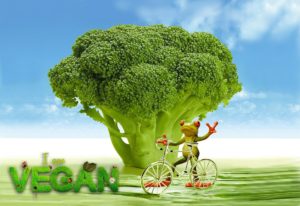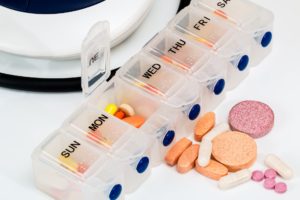What is Vitamin B12?

Vitamin B12 also known as Cobalamin, is a water-soluble Vitamin that is involved in the metabolism of every cell of the human body. B12 cannot be manufactured by humans, we need to source our supply from animal proteins or fortified food products. It is a co-factor in DNA synthesis and in both fatty acid & amino acid metabolism. It is particularly important in the normal functioning of the Nervous system, energy production another role is the maturation of developing red blood cells that are needed to carry oxygen & nutrients to the body.
B12 is one of the eight B vitamins, it is the largest & most structurally complex vitamins. It consists of a class of chemically related compounds, all of which show physiological activity. It is a nutrient that helps keep the body’s nerve & blood cells healthy & help make DNA, the genetic material in all cells. Vitamin B12 also helps prevent a type of anemia called Megaloblastic anemia that makes people feel tired and weak. When you’re anemic, your body doesnt have enough red blood cells to transport to your vital organs.
The Importance of Vitamin B12

A slight deficiency of vitamin B12 can lead to anemia, fatigue, Mania, and depression. Long term deficiency can cause permanent damage to the brain & central nervous system. Vitamin B12 can only be manufactured by bacteria & can only be found naturally in animal products, however, synthetic forms are widely available. This water-soluble vitamin is often known as our ‘memory-boosting, brain health nutrient. We also need sufficient levels of B12 to do the following. Daily amounts for adults is 2.4micrograms.
- Convert carbohydrates into the glucose used by the body for energy
- Prevent brain disease’s (Alzheimer’s disease, Dementia).
- Spark cellular reproduction to renew the health of hair, skin & Nails).
- Regulates the nervous system for a reduction in depression & anxiety.
- Make DNA & red blood cells, also, B12 assists in the formation & maintenance of the Myelin Sheath(the protective layer that safeguards the brain & nervous system signals.
Here are some of the signs & symptoms of Vitamin B12 deficiency if left untreated

- Weakness, tiredness or lightheadedness
- Rapid heartbeat or difficulty breathing
- Poor memory or difficulty concentrating
- Depression or anxiety
- Numbness & tingling of hands or feet
- Difficulty with balance or poor coordination
- Looking Pale all the time
- Easy bruising or bleeding gums
- upset stomach or weight loss
- Vision Loss
- Helicobacter pylori infection in the stomach
- Muscle aches & Joint pain
- Poor dental health
Are you getting enough Vitamin B12?

Most people do get enough Vit B12 from the foods they eat, but some people have trouble absorbing this vitamin from their food. Your doctor can test your B12 levels to see if you have a deficiency. Vitamin B12 is found naturally in a wide variety of animal foods & is added to some fortified foods. Plant foods have no vitamin B12 unless they are fortified.
If you don’t eat animal products, or you have a medical condition that limits how well your body absorbs nutrients, you can take vitamin B12 in a multivitamin or other supplement & foods fortified with B12. You can also speak to your Doctor about getting your B12 through an injection, usually, every 3months many people have to get their Vitamin B12 this way. If you do choose to take a supplement let your doctor know, so they can make sure that it won’t affect any medication you might be taking.
Foods With Vitamin B12

*Beef is an excellent source of B12 also these need to be organic or free range, Clams (small chewy shellfish packed with nutrients).
*Fish like Sardines, tuna, trout & salmon.
*Lamb & Liver another great source
*Eggs and other dairy products(milk, cheese, yogurt, etc)
*Some breakfast cereals, nutritional yeasts & other food products that are fortified with Vitamin B12 check the product label to see if it has been added.
Two steps are required for the body to absorb Vit B12 from the body to absorb Vit B12 from food.
First Hydrochloric acid (this is an acid made in the stomach, it works with enzymes substances that speed up chemical reactions in the body to breakdown protein during digestion) in the stomach separates Vit B12 from the animal protein to which Vit B12 is attached in food.
Then after that, the Vitamin B12 combines with a protein made by the stomach called Intrinsic Factor (a protein made by the stomach that is needed to absorb Vit B12 in the large intestine) & is absorbed by the body. Some people have Pernicious anemia a condition in which they cannot make Intrinsic factor, as a result, they have trouble absorbing Vit B12 from all foods & dietary supplements. Unfortunately, both stomach acid & intrinsic factor levels decrease with age so in time only about 1% of the B12 gets absorbed from food.
There are groups of people who may not get enough Vitamin B12 or have trouble absorbing it.

- People who eat little or no animal foods such as vegetarians & vegans because only animal foods have Vitamin B12 naturally.
- People with pernicious anemia whose bodies do NOT make Intrinsic factor needed to absorb Vitamin B12. Doctors usually treat pernicious anemia with Vitamin B12 shots.
- People who have had gastrointestinal surgery, such as weight loss surgery or people with digestive disorders such as celiac disease or Crohn’s disease, Celiac disease, bacterial growth or a parasite. These conditions can decrease the amount of Vitamin B12 that the body can absorb.
- Many adults mostly over 50 who do not have enough hydrochloric acid in the stomach to absorb the B12 from fortified foods or dietary supplements.
- Atrophic gastritis, in which stomach lining has thinned.
- Heavy alcohol use or advanced liver disease. Even moderate amounts of alcohol consumption can have negative effects on the amount of B12 you absorb. Moderate to severe chronic alcohol consumption can have damaging effects on your stomach lining, causing a condition I mentioned earlier called Atrophic gastritis, or inflammation of the stomach. When this occurs, the cells of the stomach cannot do their job of making & secreting Intrinsic Factor which enhances B12 absorption.
- Autoimmune conditions such as Graves disease, lupus malnutrition or eating disorders or long term use of medications such as Proton pump inhibitors, H2 blockers, metformin & certain antibiotics.
Interaction with Vitamin B12

Vitamin B12 can interact with or interfere with medication you may be taking & in some cases medicines can lower B12 levels in the body. Here are some medicines that can interfere with the body’s absorption of B12.
- An antibiotic that is used to treat certain infections Chloramphenicol (Chloromycetin)
- Proton pump inhibitors such as omeprazole, lansoprazole both used to treat acid reflux & peptic ulcer disease.
- Histamine H2 receptor antagonist such as cimetidine, Famotidine & ranitidine also used to treat peptic ulcer disease.
- Metformin, a drug used to treat diabetes.
Again make sure to tell your pharmacist or doctor about any dietary supplements & medications you are taking. They will be able to advise you if they could interact with your prescriptions or over the counter medicines.
Hope you found this helpful
Chat to ye soon Emmeline!
